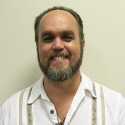 Georgia Conflict Center, where I work as Executive Director, shares offices with several other nonprofits. We get to know the other folks that work here to varying degrees, depending on proximity or how closely our missions overlap. Sometimes I find myself sharing our work with someone I have seen often but don’t really know. Recently I had just such a discussion with a woman who runs a tutoring program. We were both in the hall after hours and took a few moments to introduce ourselves and what we do. After I told her about our conflict skills programs, restorative justice and our approach to addressing conflict she said, “I’d love to know the story of how you came to this work.” I told her I would love to share my story with her, and promised to do so when we had more time.
Georgia Conflict Center, where I work as Executive Director, shares offices with several other nonprofits. We get to know the other folks that work here to varying degrees, depending on proximity or how closely our missions overlap. Sometimes I find myself sharing our work with someone I have seen often but don’t really know. Recently I had just such a discussion with a woman who runs a tutoring program. We were both in the hall after hours and took a few moments to introduce ourselves and what we do. After I told her about our conflict skills programs, restorative justice and our approach to addressing conflict she said, “I’d love to know the story of how you came to this work.” I told her I would love to share my story with her, and promised to do so when we had more time.
Sometimes I forget that looking at conflict as an opportunity isn’t the common view. Most of us avoid conflict when we can. That isn’t always a bad strategy, but sometimes the cost can be high. Similarly, looking at justice questions through a restorative lens is still uncommon, though when I explain it to people they like the idea. The connection for me, based on my own life and on observing many others, is a fundamental and unshakeable faith in our human ability to change and to grow into ever better versions of ourselves.
As a young person I embraced a philosophy of violence. How I got to that point is a longer story, so suffice it to say that at the time, looking at how the world operated, it made perfect sense to me. I would say it is still the prevailing approach of most governments and of a lot of people across the globe. I was so convinced of my views that I put myself in prison by following them.
The story of what led me to change is a long one too, but the short version is that I embraced nonviolence, personal reflection, self-responsibility, and a slew of other ideas and approaches that gave me the skills to change. In the beginning I didn’t know what to do or how to be different. I only knew that what I was doing wasn’t working, and I decided to figure out what to do next. I have been doing that ever since, and along the way I was able to help others do the same.
It’s been my experience that people of all ages are looking for a better way to live, a better way to address struggle, and a better way to be in the world. I talk to a lot of people about how we address conflict and harm. Sometimes it’s in a legal context and a law has been broken, but more often it is the daily struggles of navigating society that weigh most people down. This is true in workplaces, prisons, schools, housing projects, and every other place I visit. When we begin to explore what works for people, what could be different and what they’d like to see happen next, the same themes emerge over and over.
Given the skills and a safe space to work in, people will take responsibility for their actions, they will willingly listen to others, they will practice empathy and they will look for ways to contribute to others and to meet their own needs in ways that don’t harm others. This isn’t an idealistic dream; it’s my (mostly) daily experience.
Understanding that this willingness to engage pro-socially and collaboratively is a trait that all people share (though it may be latent), underlies a lot of the work in justice reform. A kid getting into trouble or not often depends on their skill set for handling problems. Sharing that skill set is activism. We wouldn’t share it if we believed it wouldn’t be taken in.
Justice policies, brain research, best practices, and a lot of other things that get attention in justice reform are undoubtedly important. Let’s remember though that the subjects of those debates are people, individuals who are ready to expand their options given the chance. Remembering this will let us engage directly with them. In my work I try to remember three prepositions. Punitive systems do something “to” people. Social services often do something “for” people. Both of these can be dehumanizing and crippling. Instead, I strive to do something “with” people, and remembering that their basic nature and goals are the same as mine helps me stick with that strategy.































